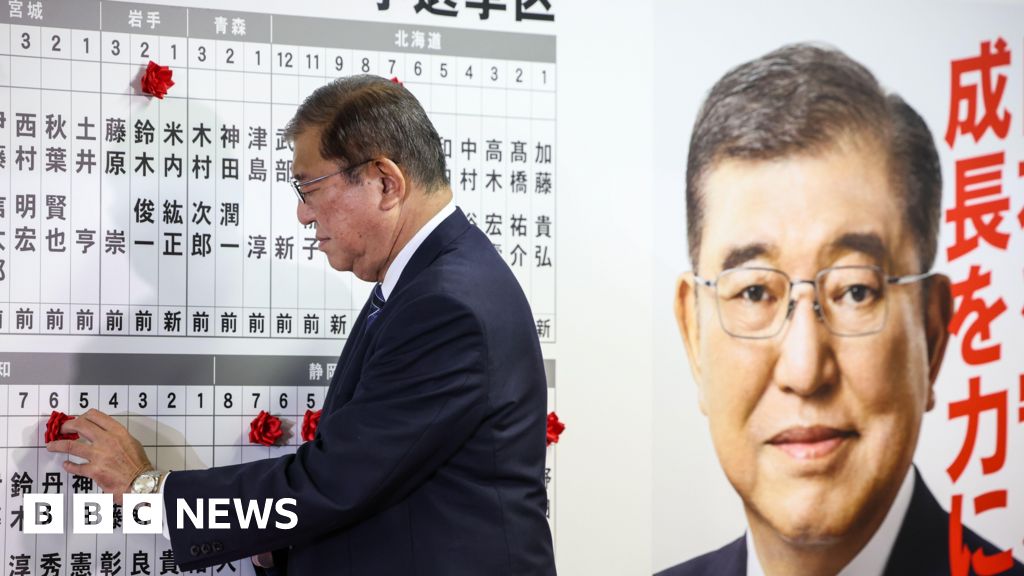It is hard to overstate how rare this is. The LDP has always enjoyed a safe and steady place in Japanese politics.
The ruling party has a strong track record of governance – and when the opposition did take over in 1993 and 2009, for three years each time, it ended badly.
Since the LDP came back to power in 2012, it managed to win one election after another almost uncontested. There has long been a resignation about the status quo, and the opposition still remains unconvincing to the public.
“I think we (the Japanese) are very conservative,” Miyuki Fujisaki, 66, told me a few days before the election.
“It’s very hard for us to challenge and make a change. And when the ruling party changed once (and the opposition took over), nothing actually changed in the end, that’s why we tend to stay conservative,” she added.
Ms Fujisaki told me that she was unsure who to vote for this time, especially with the fundraising corruption scandal hanging over the LDP. But since she has always voted for the LDP, she was going to do the same this election too.
The results of this election tell a bigger story about the state of Japanese politics: A ruling party that has dominated for decades and an opposition that has failed to unite and become a viable alternative when the public needed one.
In this election, the LDP lost their majority. But no one really won.
Japan’s ruling party took a beating at the ballot box – but not a big enough beating that it has been booted out.
Jeffrey Hall, a lecturer at Kanda University of International Studies, told the BBC that despite voters wanting to hold their politicians accountable through elections “in the minds of the voters there really is no one else” they trust to be at the helm.
In this election, the opposition’s biggest party – the Constitutional Democratic Party (CDP) – made significant gains. But observers say these results are less about voters endorsing the opposition than about voters’ ire with the LDP.
“This election appears to be about voters who are fed up with a party and politicians they see as corrupt and dirty. But it’s not one where they want to bring about a new leader,” Mr Hall said.
What that leaves Japan with is a weakened ruling party and a splintered opposition.
Japan has long been seen as a beacon of political stability – a safe haven for investors and a reliable diplomatic partner in an increasingly unstable Asia Pacific.
This political chaos in Japan is concerning not just for its public, but also its neighbours and allies.
However the LDP enters power, it will do so weakened, with its hands tied in coalition concessions.
The task of turning the economy around, creating coherent policies for wages and welfare and maintaining overall political stability will not be easy.
Harder still will be regaining the trust and respect of a public weary of politics.

